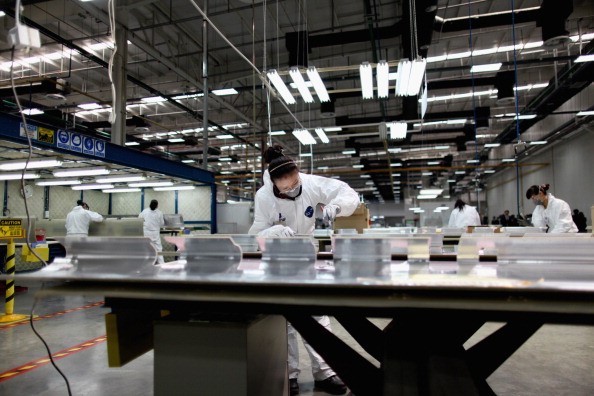U.S. aviation giant Boeing is expecting China to become its first trillion-dollar market as more than 6,000 new commercial planes will be needed by the country for its aviation expansion in the next two decades.
According to Forbes, China bought 164 Boeing airplanes, worth about $11 billion, this year, making it Boeing's largest customer. The aviation company hopes to maintain the relationship.
"This is a great opportunity to strengthen Boeing's deep and historical ties with China. More important than just a market, it's about working shoulder-to-shoulder with all of our Chinese partners," Raymond Conner, vice chairman of Boeing, was quoted as saying in a recent U.S.-China relations event in New York.
Conner said that the country's demand for planes in the next 20 years would account for about 30 percent of all of its 737 airplane deliveries as well as 25 percent of all airplane models. He added that these orders could support about 150,000 jobs a year.
However, if President-elect Donald Trump decides to impose tough trade policies toward China, Boeing may suffer big losses as China might retaliate if the U.S. imposes high tariffs on imports. Boeing's revenue decreased by $1.9 billion to $23.9 billion, in the third quarter of 2016.
According to the latest Boeing outlook report, the company looks at Asia, especially China, as important growth markets, accounting for about 40 percent of the total new airplanes needed for the next two decades. The company also does not want to lose its orders and "be replaced by Airbus."
Analysts, however, said that this would all depend on how Trump will act on his pronouncements, but it would be better to consider the Chinese market in the long term.
"I think the key item to note is the long-term drivers which are in place in China to promote growth," Jeff Windau, a senior equity research analyst at Edward Jones, told Forbes.
"A rising middle class is helping to drive increases in airline passenger traffic in Asia. That is helping to promote travel inside of China and internationally, thus, Chinese airlines will increase demand in new airplanes," he added.
In 2015, during President Xi Jinping's visit to the U.S., a historic agreement was signed as Boeing agreed to build its first offshore facilities in China, in partnership with the Commercial Aircraft Corporation of China. The facilities are expected to produce around 100 Boeing 737 planes annually.
Conner said the move would bring Boeing's products closer to its customers in China as well as free up its U.S. production facilities, which is a win-win situation for the two countries.
"We invest about $1 billion every year to support China's aviation industry, and Chinese suppliers have roles in every one of our commercial airplane models. China is enormously important to our success as a company and as a major U.S. exporter," Conner explained.
Conner added that the company is also looking at China's growing e-commerce industry which Boeing sees as the next potential revenue earner.
Earlier this year, the aviation giant offered a passenger-planes-to-freighters conversion program, which allowed Next-Generation 737s to carry up to 52,000 pounds of cargo long distance. China's delivery giants YTO and SF Express have ordered the freighters including 30 Chinese companies and 13 more.



























